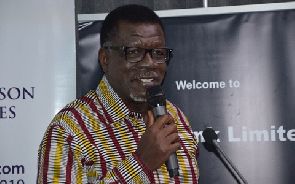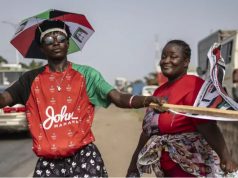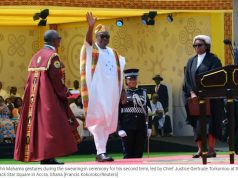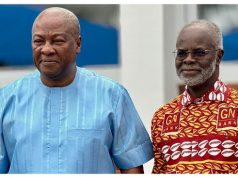A lecturer in Sociology, Nana Obiri Yeboah, has said mob action is a universal phenomenon and should not be viewed as a reflection of Ghana’s culture as the General Overseer of the International Central Gospel Church (ICGC), Dr Mensa Otabil, has said.
Dr Otabil, while speaking at a Business Roundtable in Accra on 31 May 2017, noted that the recent lynching of army officer Captain Maxwell Mahama at Denkyira Obuasi was a reflection of Ghanaian culture.
“The big news in Ghana is what happened recently to the dear soldier who was lynched. But really what happened to him is cultural. It is in our culture; we do it every day and we will continue to do it. The only thing is that it happened to somebody with visibility so we are worried, but we will go back to the same culture which is the culture of disrespect for life and to rules, procedure,” the renowned man of God said.
“You cannot say they [the mob] have not gone to school, we cannot say they do not know human rights but in that circumstance, they chose to exhibit that behaviour.”
But reacting to Dr Otabil’s assertion on the Executive Breakfast Show (EBS) on Class91.3FM on Thursday 1 June, Dr Yeboah said lynching was universal and not unique to Ghana.
“I don’t think this is limited to Africa. We also have mob action or lynching in the Bible. Stephen was lynched by some religious leaders. Moses and the rest took part in mob action, a lot of them, and it was part of them so it’s not limited to Africa. But the problem is that the moment people hear of the culture they say ‘African culture’, but culture is universal and even in America there have been lynching of even blacks and others.
It’s racial, it’s everything, it’s not limited to Ghana, so if you say it’s our culture, are you referring to your hometown or the whole world? But then the problem is how we react to extreme deviant behaviour. If he [Otabil] can put it that way then we will all have an understanding of what is happening,” Dr Yeboah told show host Moro Awudu.
He explained: “The moment you say it’s becoming part of our culture, when you say culture, it’s not limited to one group. Let’s understand because [culture] is a shared value. But the way Dr Otabil puts it, it looks like it’s limited to [us] – Africans or only in Ghana – but then its universal, it’s in the Bible. He should have also said there have been lynching in the Bible.
Stephen was lynched, some apostles were killed by mob action, so don’t look down on Africa and say it’s our culture. It’s a universal culture and we have to deal with it.
So he shouldn’t spite us by saying it’s becoming part of Ghanaian culture as if there’s a sort of a breakdown of systems or whatever. The police system and everything is universal and when justice is so slow, people react.”








